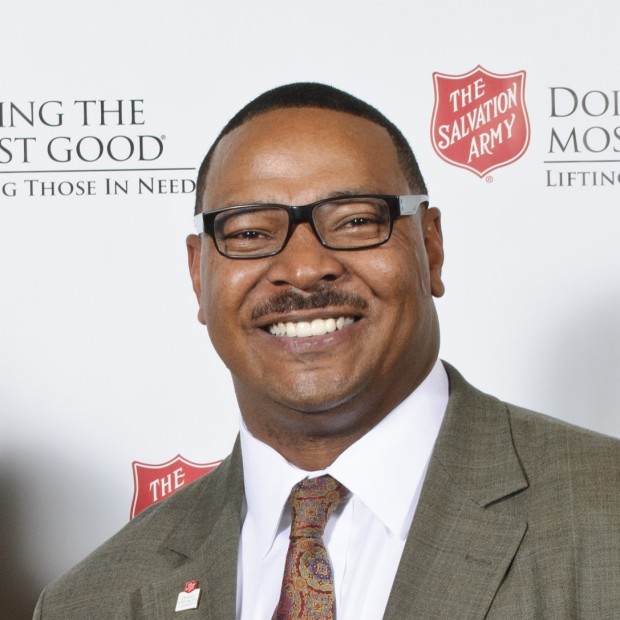
Gerald Brown has been part of Middle Tennessee’s nonprofit scene for more than 12 years. With his genuine southern charm and easygoing style, it’s no surprise that he knows a lot of people from networking like a star. And, while his networking ability is key in opening doors, it’s his acumen for cultivating relationships, sales and managing time effectively, that keep those doors opening again and again.
Recently, Gerald spoke to Third Sector Today to share his tips for what makes a successful Development Professional. And, perhaps it’s his past experience with The Boy Scouts of America, which instills “being prepared” isn’t an option, but a necessity.
Today, Gerald is the Executive Director of Development at The Salvation Army in Nashville, TN where he works with donors of the $25,000 and $1,000,000 gift range—and he’s acutely aware that there are 20 or more organizations also calling on them for gifts. Here’s his advice for increasing your chances for success:
Know what you’re selling
Know the strengths of your program: Be prepared to answer questions about the organization and program on the spot.
Know who are you selling to
“Before you solicit a donor for their money or time” from anyone, you have to find the potential donor’s passions and how they can align with your cause. Think about how you can get people engaged with your cause. Help them through the process: Help them understand how they benefit your organization and what way their talents and resources can be best utilized. Help make it easy for them to get involved in the way that best suits them.
Recognize that a donor’s time is just as important and valuable as their resources
Be completely prepared for your meeting, like a good Boy Scout! Present materials based on how the conversation goes, but Brown suggests being prepared to present or answer questions about various programs outcomes or aspirations, board members, upcoming projects, volunteer opportunities, capital projects, funding needs, and client stories. And reminds us to always follow up with a thank you card or call and schedule a 2nd meeting.
His personal style is to prioritize A, B & C items for the week and schedule wisely by finding the most effective time for meetings. “Most everyone has to drink coffee or take lunch,” he laughed, suggesting that sometimes those are the best ways to schedule important meetings.
Having crafted his own time management system, a typical day might consist of meeting with board members, volunteers, and potential partners in the morning, consulting with staff in the afternoon and returning emails and/or phone calls in the evening. Often, the order of events change based on scheduling, and planning to execute mission objectives are also squeezed into his busy daily and weekly routines.
Cultivate relationships
The reason Gerald knows so many people is that he works on building relationships with them rather than just adding cards to a Rolodex. “Building relationships is an art form! A good non-profit professional must learn about community, its leaders, their families, the history of the region, and have an ability to speak on a diverse range of local, regional, and national topics. One of the most important lessons I have learned of the years is to be a skillful listener!
Represent your organization
Last, but certainly not least, remember that you are the face of the organization. However you’re perceived—unprepared or unable to answer questions—that’s the perception the donor will have of your organization. And, he cautions, “…this is especially true of small organizations, which may not have the “brand” or history of century-old non-profits.”
“Life is a journey,” Gerald said. He wouldn’t be where he is with the Salvation Army had it not been for the Boy Scouts of America. While employed with the BSA, Gerald was able to learn and master the principles of nonprofit fundraising, volunteer recruitment, and program development. He credits retired scout executive and nationally recognized development professional, Joe Long for mentoring him. Mr. Long instilled in Gerald the necessary attributes and skill sets to be a successful non-profit professional
Gerald believes he had“ a calling to give back, “ thus, the change to serve with The Salvation Army. He really believes in the mission and vision of The Salvation Army and wanted to help more people in the Nashville community by uplifting them from their impoverished environment. Gerald’s personal background is similar to many of the clients that he now serves through The Salvation Army. Gerald grew up in an environment in Memphis, TN that was riddled with crime, drugs, and violence, but he chose to follow a different path. Like many people in those types of areas, his family dynamic did not involve a father, but he did have a caring mother who “broke her back to provide for her two boys.” The time came in his life to help families in similar circumstances
Recently, he has put another calling into action by launching a new venture, The American Dream, LLC, in Nashville, TN. Here he “gives back” by helping provide business strategy, infrastructure, strategic planning, and funding to blue collar people interested in starting and owning their own businesses. In just a short amount of time he has already helped several new business owners realize their dreams!








